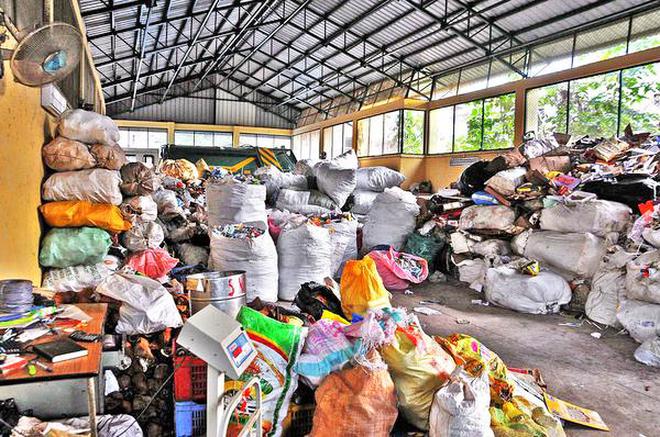After the Karnataka government’s plan to find 100-acre land parcels in Bengaluru Rural, Bengaluru Urban and Ramanagara districts drew criticism, Deputy Chief Minister and Bengaluru Development Minister D.K. Shivakumar has asked the Bruhat Bengaluru Mahanagara Palike to come up with long-term solutions for handling waste in the city.
He gave the instructions at a recent meeting held with officials of the Bengaluru Solid Waste Management Limited (BSWML).
At present, a majority of the waste is being dumped in landfills, while a part of the segregated wet waste is being processed at the six waste processing plants in the city. The BBMP has been facing opposition from locals over the presence of such plants and landfills due to the bad odour that emanates from the facilities.
This prompted Mr. Shivakumar to direct the Deputy Commissioners of Ramanagara, Bengaluru Urban, and Bengaluru Rural to find 100-acre parcels of land. When the news was reported by The Hindu, former Chief Minister H.D. Kumaraswamy criticised the plan, while even experts raised red flag.

A senior BBMP official said Mr. Shivakumar, during the meeting held recently, was inclined towards going with best practices and long-term solutions for the problem, also keeping in mind the trouble faced by the locals where such plants are currently operating.
For this to happen, the BSWML has to first finalise the waste collection tenders, which was abruptly stopped ahead of Assembly polls. The BSWML is now focused on tender. The officials will also come up with new plans to comply with the directions of Mr. Shivakumar.
Ward-level disposal and processing
Sandhya Narayan, a solid waste management expert, said the best practice for managing waste is disposing/processing at the ward level. A large portion of waste can be processed at the ward level, and the rest can be sent to a centralised facility.
The BSWML has to persuade the government to allocate 1-2 acres of land at the ward level and a budget to maintain the same. With land and money, technology will follow to run them smoothly without any concern towards health. This is the best practice the government can adopt, she said.
The civic body had experimented with setting up biomethanisation plants of five tonnes per day (TPD) in the city a few years ago. However, they did not take off due to technology issues. Now, the 13 existing plants are being revived, and four more new plants of 5TPD capacity are being set up. Most of the wards in the city already have a Dry Waste Collection Centre (DWCC).







